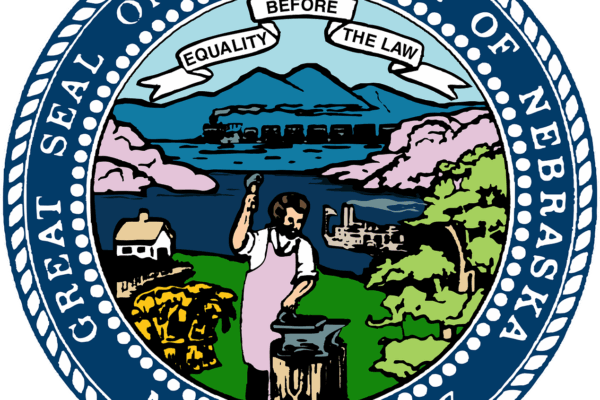Unprecedented; it's a word we've heard a lot lately. Major Nebraska events are being canceled or postponed. Schools and businesses are closing. Many of us who are fortunate enough to work from home are doing so.
Nebraskans rally when times get tough. We help neighbors in need. At the ACLU of Nebraska, our team will be doing our part by working to ensure responses to the coronavirus respect our civil liberties and individual rights.
Each day brings a new development.
Monday, state leaders decided to pause the legislative session to put public health needs first. That's the right call. And even as debate halts, work continues as state senators and staff plan a response to this outbreak.
Early discussion is encouraging. We hope to see our state's leaders build off federal action on paid leave for families and businesses impacted by the virus, expand access to all mail voting (ASAP), reform bail to address the strain on overcrowded jails, and make smart investments to protect our most vulnerable neighbors.
Impactful measures unrelated to this crisis are also waiting on votes. This session holds promise for action on anti-bias training for law enforcement officers, workplace protections for LGBTQ Nebraskans, mandatory minimum sentencing reform, support to survivors of sexual assault, and other important proposals. When public health allows, the business of the people must move forward as planned through Day 60.
Other Nebraska governing bodies are also affected by this crisis. Governor Pete Ricketts issued an executive order Tuesday that allows virtual meetings so long as they're accessible to the public and media. Each board or council adopting virtual meetings needs to think through what accessibility looks like, especially for Nebraskans who lack access to technology and those who are visually and hearing impaired.
Access is also crucial to court proceedings. Health concerns must be balanced with protections of due process and freedom of the press. Recent reporting of journalists barred from county courtrooms raises concerns, and we will be engaging directly with decision-makers to ensure fundamental rights are protected.
Finally, people who are incarcerated are uniquely susceptible to disease because of chronic overcrowding. We saw how quickly diseases can travel behind bars during a flu outbreak this winter. Nebraska's Department of Correctional Services suspended visits to jails and prisons this week. We are sending guidance to the department to ensure that emergency responses, like this one, are grounded in public health science and don't compound existing concerns.
This is a fluid situation. We know more challenges are ahead and, like you, all of us on the team are feeling a mix of uncertainty and concern about what the coming days and weeks bring.
Even amidst the uncertainty, there are things we can all do right now to protect and strengthen civil liberties – register to vote online, request a vote by mail ballot (request forms will be mailed to all registered voters in Douglas, Sarpy, Lancaster, and Cass counties), and complete the census online. You likely received a mailing on the census this week.
Take care of yourself and know that you have a dedicated team of watchdog civil rights attorneys and advocates who will be monitoring response to this crisis every step of the way.
We are in this together.



